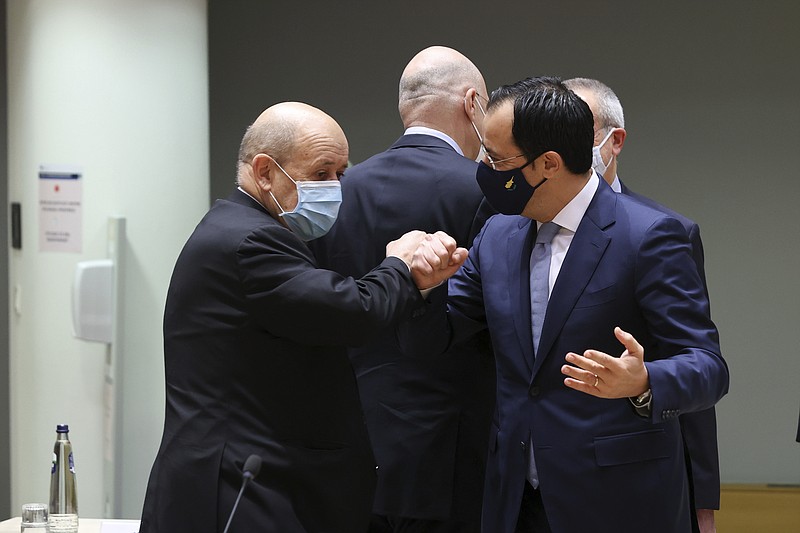BRUSSELS -- The European Union, Britain, Canada and the United States on Monday set in motion coordinated sanctions against officials in China over human-rights abuses in the far western Xinjiang region, provoking swift retaliation from Beijing.
The EU targeted four senior officials in Xinjiang. The sanctions involve a freeze on the officials' assets and a ban on them traveling in the bloc. European citizens and companies are not permitted to provide them with financial assistance.
The 27-nation bloc also froze the assets of the Xinjiang Production and Construction Corps Public Security Bureau, which it describes as a "state-owned economic and paramilitary organization" that runs Xinjiang and controls its economy.
British Foreign Secretary Dominic Raab said the measures were part of "intensive diplomacy" by the U.K, the United States, Canada and the 27-nation EU to force action amid mounting evidence about serious rights abuses against the Uyghur Muslim people.
U.S. Secretary of State Antony Blinken said in a statement that "a united transatlantic response sends a strong signal to those who violate or abuse international human rights, and we will take further actions in coordination with likeminded partners."
"We will continue to stand with our allies around the world in calling for an immediate end to the PRC's crimes and for justice for the many victims," Blinken said.
Initially, China denied the existence of camps for detaining Uyghurs in Xinjiang but has since described them as centers to provide job training and to reeducate those exposed to radical jihadi thinking. Officials deny all charges of human rights abuses there.
Xinjiang had been a hotbed of anti-government violence, but Beijing claims its security crackdown brought peace in recent years.
China's Foreign Ministry denounced the EU sanctions as "based on nothing but lies and disinformation" as it issued its own retaliatory measures.
The ministry announced sanctions against 10 individuals and four institutions, saying that they and their family members would be barred from entering mainland China, Hong Kong or Macao and cut off from financial dealings with those areas.
Among those targeted was Adrian Zenz, a U.S.-based German scholar who has publicized abuses against minority groups in China's regions of Tibet and Xinjiang. China has said companies and individuals have petitioned to sue Zenz, but it wasn't clear who the plaintiffs were or how they would pursue legal action across borders.
Others targeted for sanctions include five members of the European Parliament: Reinhard Butikofer, Michael Gahler, Raphael Glucksmann, Ilhan Kyuchyuk and Miriam Lexmann.
The ministry did not say what measures would be taken against the organizations. They were listed as the Political and Security Committee of the Council of the European Union, where the 27 national envoys decide foreign and security policy; the EU Parliament's Subcommittee on Human Rights; the German-based Mercator Institute for China Studies; and the Alliance of Democracies Foundation in Denmark.
EU foreign policy chief Josep Borrell, who chaired the meeting of foreign ministers, expressed dismay at China's reaction and said the EU's sanctions respect the "highest standards of rule of law."
"Rather than change its policies and address our legitimate concerns, China has again turned a blind eye, and these measures are regrettable and unacceptable," Borrell said.
"There will be no change in European Union determination to defend human rights and to respond to serious violations and abuses," he added, and described the coordination between the EU, Britain, Canada and the U.S. as "perfect."
Information for this article was contributed by Christopher Bodeen and Noha El Hennawy of The Associated Press.




